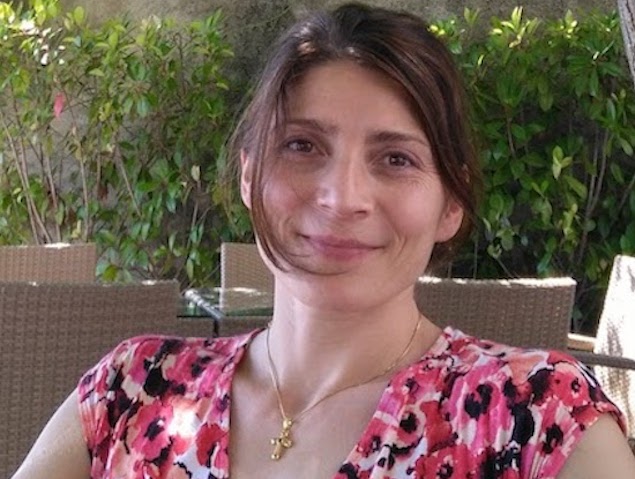
Dr Despina Alexiadou
Reader
Politics
Back to staff profile
Prize And Awards
- Politicians, Policies and the Reproduction of Wealth
- Recipient
- 10/2022
- EPSA Council Member
- Recipient
- 6/2021
- Senior Fellow at the Cluster of Excellence, "The Politics of Inequality"
- Recipient
- 1/10/2020
- Top Peer Reviewer on Publons for 2018
- Recipient
- 2018
- Hewlett International Faculty Grant
- Recipient
- 2015
- Faculty Research Grant for the Project "Ideologues, Partisans and Loyalists"
- Recipient
- 2012
Back to staff profile
Publications
- Parties in government and in coalitions
- Greene Zachary, Alexiadou Despina
- The Routledge Handbook of Political Parties (2023) (2023)
- https://doi.org/10.4324/9780429263859
- Editorial : The politics of expertise: Understanding interactions between policy advice, government, and outcomes during the COVID-19 pandemic
- Ahmadov Anar, Alexiadou Despina, Cho Min, Makszin Kristin
- Frontiers in Political Science Vol 4 (2022)
- https://doi.org/10.3389/fpos.2022.1069930
- Policy coordination and energy efficiency
- Alexiadou Despina, Aklin Michaël
- American Political Science Association Annual Conference 2022 (2022)
- Social democratic parties and class representation in parliamentary democracies
- Alexiadou Despina
- American Political Science Association Annual Conference 2022, pp. 1-15 (2022)
- The leadership dilemma : examining the impact of strong leaders on parties
- Alexiadou Despina, O'Malley Eoin
- European Journal of Political Research Vol 61, pp. 783-806 (2022)
- https://doi.org/10.1111/1475-6765.12492
- Cabinet ministers and inequality
- Alexiadou Despina
- European Journal of Political Research Vol 61, pp. 326-350 (2022)
- https://doi.org/10.1111/1475-6765.12482
Back to staff profile
Teaching
I have taught a number of undergraduate and graduate courses in comparative politics, comparative political economy and public policy, comparative welfare states, and time-series cross section data analysis. At Strathclyde, I am teaching an entry level course on comparative politics (L2108: Politics: Decisionmaking and Outcomes) and a third year course on the theoretical foundations of economic policy in industrialised democracies (L2343: Philosophy of Economic Policy).
Back to staff profile
Professional Activities
- Nuffield College, University Of Oxford
- Visiting researcher
- 2025
- European Political Science Association, Glasgow 2023
- Participant
- 6/2023
- The Selection of Rulers in Changing Democracies
- Participant
- 12/2022
- Professionalisation and Expertise in Parliamentary Cabinets
- Speaker
- 12/2022
- Radio interview with Newzroom Afrika
- Recipient
- 11/2022
- Kwasi Kwarteng: only a desperate prime minister sacks a chancellor
- Recipient
- 10/2022
Projects
- Why so few working-class women in politics? A comparative case of British and Scottish Elections
- Sylvester, Christine (Principal Investigator) Reher, Stefanie (Academic) Alexiadou, Despina (Academic)
- In the UK, less than three percent of members of parliament (MPs), and none of those newly elected in the 2017 and 2019 elections, have a genuine working-class background, which unfavourably compares to the 34 percent of the British population with a working-class background. At the same time, while women are still underrepresented in politics their share of MPs has been constantly rising, constituting now 34% of all MPs compared to 3% in 1979. Nonetheless, the significant changes in the socio-economic profiles of elected politicians have mostly gone unnoticed. These changes have resulted in a fundamental shift in political representation. Though politicians never closely mirrored society, over time there is even less resemblance between political assemblies and society in socio-economic terms.
This project will explore gender and class inequalities within representative institutions in the UK and Scotland. To do this, the project will first, provide a new theory on the intersection of gender and social class. How should we best conceptualise and measure women candidates’ social class? Second, the project will analyse and code data on Westminster candidates from 1974 to 2015. These data, which include information on candidates’ education and profession, have been collected by professors Rosie Campbell and Jennifer Hudson and shared with Dr Alexiadou. This analysis will be the first time we will record temporal changes in the numbers of top candidates and British MPs in terms of both their gender and social class. To this day, there is no report of the socio-economic backgrounds over time of the men and women that run for office and/or have entered parliament. Finally, the project will be the first to collect data for the latest election in Scotland on the top candidates and MSPs in the latest Scottish elections, in terms of both their gender and social class. - 03-Jan-2024
- Politicians, Policies and the Reproduction of Wealth
- Alexiadou, Despina (Principal Investigator)
- 01-Jan-2024 - 31-Jan-2027
- Revolving Door Politics and Income Inequality in Europe: A study of finance ministers
- Alexiadou, Despina (Principal Investigator)
- Do politicians act in their voters’ or in their personal interests? Representative democracy rests on the assumption that voters elect members of parliament, who in turn elect the government to represent them. Yet, recent research indicates that the preferences of individual politicians can have important policy effects beyond and above the party agenda. In this project I investigate whether the rise in income inequality can be partly explained by the policy preferences and careers of finance ministers.
- 01-Jan-2020 - 30-Jan-2020
- The role of ministerial policy coordination on energy policy and energy poverty.
- Alexiadou, Despina (Principal Investigator)
- 01-Jan-2020 - 31-Jan-2021
